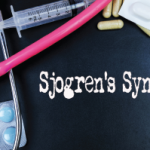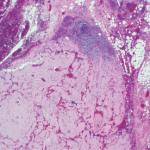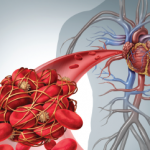NEW YORK (Reuters Health)—For young people with juvenile idiopathic arthritis (JIA) who don’t achieve disease control, switching to a different class of biologic is unlikely to be beneficial, researchers say. The observational study yielded no evidence to support or refute the 2015 National Health Service England guidelines, which recommend switching most patients to a second…

ACR/EULAR Release New Classification Criteria for IgG4-Related Disease
Immunoglobulin G4-related disease (IgG4-RD) can cause fibroinflammatory lesions in nearly any organ, and diagnosis is challenging. ACR/EULAR classification criteria for IgG4-RD have been developed and validated in a large cohort of patients. These criteria have performed well in tests and should contribute substantially to future clinical, epidemiologic and basic science investigations.
New ACR/EULAR IgG4 Classification Criteria Introduced
Immunoglobulin G4-related disease (IgG4-RD) can cause fibroinflammatory lesions in nearly any organ. Correlation among clinical, serologic, radiologic and pathologic data is required for diagnosis. ACR/EULAR classification criteria for IgG4-RD have now been developed and validated in a large cohort of patients…

GPA & Relapsing Polychondritis Discussed
Challenges related to diagnosing chondritis are discussed.

Insight into the Characteristics of Orphan Autoinflammatory Disorders
New research seeking to describe the characteristics of undefined, systemic autoinflammatory diseases may have identified distinct subgroups, including pericarditis and intellectual impairment…
Move Along: Insights Into Gastrointestinal Involvement in Systemic Sclerosis
For patients with gastrointestinal (GI) manifestations of scleroderma, the effect on quality of life & longevity can be dramatic. But advances are being made in the diagnosis & treatment of these patients…
Anti-TNF Treatment Tied to Lower Risk of Acute Arterial Events in IBD
NEW YORK (Reuters Health)—Anti-tumor necrosis factor (TNF) treatment is associated with a reduced risk of acute arterial events in patients with inflammatory bowel disease (IBD), especially men, new research shows. IBD patients face an increased risk of acute arterial events, which are also independently associated with disease activity, Julien Kirchgesner, MD, PhD, of Hospital Saint-Antoine,…

Study Says Sjögren’s Patients Have a High Specificity for a Novel Antibody
An antibody previously un-recognized in patients with Sjögren’s syndrome may shed new light on the pathophysiology of one of the most troubling and disabling symptoms in many of these patients. Investigators at Johns Hopkins University, Baltimore, found the anti-calponin 3 antibody had a high specificity for Sjögren’s syndrome, particularly among patients with neuropathies.1 “There is…

Case Report: Does a Rapid-Onset Neck Mass Have Rheumatic Origins?
A 54-year-old African American man arrived at the emergency department with the acute onset of a tender mass on the left side of his neck. It had been getting progressively larger for the preceding two days. History & Examination His history included chronic right hip osteoarthritis with two surgeries performed five years prior. At his…

Risk Assessment & Treatment in Antiphospholipid Syndrome Patients
CHICAGO—Choosing a treatment for antiphospholipid syndrome (APS) involves an array of factors, from the antibodies present to their titers to other risk factors, said Lisa Sammaritano, MD, during a guided tour of APS treatment at the 2019 ACR State-of-the-Art Clinical Symposium, held April 5–7. Dr. Sammaritano, associate attending physician at the Hospital for Special Surgery,…
- « Previous Page
- 1
- …
- 10
- 11
- 12
- 13
- 14
- …
- 36
- Next Page »